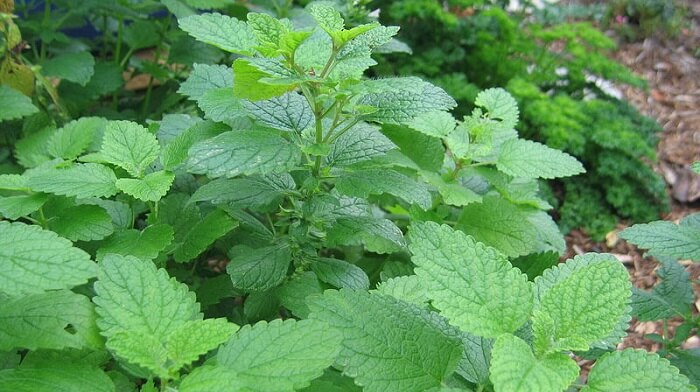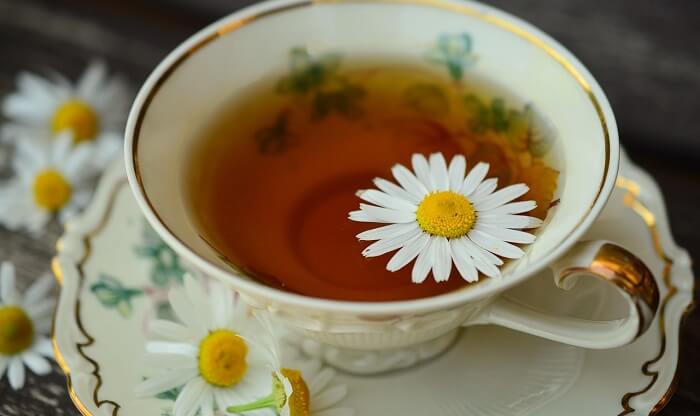The nervous system is what keeps everything in your body working in harmony, so that you can move throughout the world, perform your daily functions, think clearly, and maintain health inside your body. So if you want to prevent a whole host of problems, health conditions, and serious diseases, then keeping your nervous system in top shape is essential.
In this article, we will cover what the nervous system is, common problems that can occur, and the 7 best herbs for nervous system health.
What is the nervous system?
The nervous system acts as a control center for your body.
It is a complex network that carries information between your brain and your body, helping with everything from coordinating the movements of your muscles to telling your heart to stay in rhythm. It controls your sight and other senses, your muscles, the function of your internal organs, and also the way you think, feel, talk, and process the world around you.
The nervous system is made up of the brain and a large network of nerves that are spread throughout the entire body. Nerves rely on chemical messengers called neurotransmitters to communicate with one another and the different parts of the body. That is how they tell each other what to do and how to react to different situations and circumstances.
As a whole, the nervous system directs and organizes how you respond to the world around you, and it keeps your internal function running smoothly.
When things go wrong with the nervous system
It is easy for the nervous system to get out of balance, whether due to injury, inflammation, ongoing stress, oxidative damage, or imbalances in neurotransmitters. Any sort of imbalance or damage in the nervous system will result in it not functioning optimally. And when that happens, it impacts both our physical and mental states.

Poor nervous system health can be at the root of several common conditions, such as:
- Anxiety
- Depression
- Stress
- Cognitive decline, concentration issues, and memory loss
- Sleep problems and insomnia
- Headaches
And when things go really wrong, serious nervous system disorders can occur, such as:
- Alzheimer’s disease
- Parkinson’s disease
- Multiple Sclerosis
- Strokes
- Traumatic brain injuries
- Epilepsy
As you can see, when your nervous system is unhealthy, damaged, or imbalanced, it can lead to many different symptoms and even serious neurodegenerative disorders.
So what can you do to support your nervous system health, so that it can keep functioning like a well-oiled machine?
One option is to turn to a variety of medicinal herbs to integrate into your self-care routine.
7 Herbs for nervous system health
There are a large number of all-natural herbs that can be used to support nervous system health. Some are great for protecting your brain and nerves from damage, some help calm things down when you need it, and some keep your mental game sharp.
Let’s take a closer look at 7 of the best herbs for the nervous system:
1. Valerian root
This herb has been used since ancient Greek and Roman times for treating insomnia and calming people down. It is still commonly used today for conditions like sleep disorders and anxiety.
Valerian root helps calm the nervous system when it is overactive. It can do this by affecting levels of neurotransmitters involved in rest and sleep. For example, it increases the amount of a certain neurotransmitter called GABA, which has calming properties.1 2 8 That is likely why people find it helpful for battling anxiety and restless sleep.1 2 3 4 5 6 7
How it is used: You can take valerian root as a supplement or else drink it as a tea. It is best used before bedtime, as it has sedative-like effects.
2. Lemon balm

Lemon balm doesn’t just smell deliciously refreshing. It has also been used for over 2,000 years for complaints related to a disordered nervous system.9
Like valerian root, lemon balm can modulate the levels of certain neurotransmitters in the body, such as GABA.8 It can positively impact factors related to mood and cognitive performance, helping conditions like anxiety. It also supports children who have restlessness and concentration problems.3 10 11 Overall, valerian root can be a great option for boosting your mood and helping you think clearly.
How it is used: You can take lemon balm as a supplement, or you can drink it as a tea.
3. Ashwagandha
Ashwagandha is a medicinal herb commonly used in Ayurvedic medicine. It is one of the most popular adaptogenic herbs (herbs that help the body respond to stress and help it maintain balance).12
Ashwagandha is an anti-inflammatory herb and an antioxidant. This makes it very helpful for protecting the nervous system, and it has been widely studied for its treatment of nervous system disorders.12 13 14 Ashwagandha may be useful for protecting against dementia and Alzheimer’s disease, and it may also boost memory and cognitive function.15 16 Additionally, ashwagandha can help promote calm and reduce anxiety.8 13
How it is used: Ashwagandha is taken as a supplement.
4. Rhodiola

Rhodiola is a plant that is thought to be able to help people recover better from physical or mental strain and exhaustion.17 This makes it useful for preventing long-term damage to the nervous system and keeping us functioning at a healthy level.
Rhodiola has anti-inflammatory and neuroprotective effects, can stimulate the nervous system, and may boost neurotransmitter levels. It has been reported to help improve cognitive function, enhance learning and memory, and support anxiety. It may also be useful for protecting against disease like Alzheimer’s disease, because of its many beneficial properties.3 17 18 19
How it is used: This herb is taken as a supplement.
5. Passionflower
Passionflower is another great herb for the nervous system, because it has calming effects. It is traditionally used for things like sleep problems, anxiety, concentration issues, and even pain.
Like some of the other herbs on this list, passionflower regulates the effect of the neurotransmitter GABA. That is likely why people report feeling more relaxed and calm with this herb, and why it may help with conditions such as insomnia.4 8 20
How it is used: Passionflower is available dried, and it can be used to make a tea. It is also available in supplement form.
6. Ginkgo biloba
Extracts from the ginkgo biloba tree have long been used for medicinal purposes. Ginkgo can be helpful in improving things like anxiety, memory, cognitive function, and more. It may play a role in Alzheimer’s and dementia as well.3 21 22
Ginkgo likely works by altering levels of neurotransmitters like serotonin and GABA, and also by lowering inflammation in the nervous system.4 8 23 This makes it really helpful for boosting nervous system function and preventing deterioration and damage.
How it is used: Extracts from ginkgo leafs are used in tablets, capsules, and teas.
7. Chamomile

Many of us are familiar with chamomile tea. It is a popular, soothing tea to sip on at bedtime. And for good reason. Chamomile tea actually impacts the nervous system in a way that helps support a healthy sleep cycle.
Researchers believe that chamomile tea has certain compounds in it that react with receptors in the brain that regulate our sleep-wake cycle. Chamomile also impacts GABA (a calming neurotransmitter) and can help with relieving anxiety.8 24 25
How it is used: Chamomile is most commonly consumed as a tea before bedtime. It can also be found as a supplement or tincture.
Add herbs to keep your nervous system healthy
These 7 herbs for nervous system health can be great additions to your self-care routine. Whether that means sipping on chamomile tea before bed, taking a valerian root supplement to help manage your anxiety, or trying ginkgo to keep your memory sharp, there is something here for everyone.
Remember, your nervous system is one of the most integral systems in your body, and it is essential for you to live a long, healthy life. Whatever you can do to help this system run smoothly will keep your brain and body happy in the long run and will be well worth your while.
Along these lines, a ZYTO biocommunication scan, or bioscan, can help you discover the supplements and other wellness products that your body prefers. You can scan for items that not only support nervous system health, but overall wellness as well.
Note: As with all supplements, it is always best to speak with your doctor before taking any of these herbs to ensure that they are a safe choice for you.
 About Chelsea Clark
About Chelsea Clark
Chelsea Clark is a writer and certified health and wellness coach who is passionate about supporting others along their own health journeys. She enjoys helping people make positive, lasting changes so that they can live the happiest, healthiest life possible.
Sources:
1. “Valerian Fact Sheet” National Institutes of Health. Ods.od.nih.org.
2. Mineo, L., C. Concerto, D. Patel, et al. “Valeriana officinalis Root Extract Modulates Cortical Excitatory Circuits in Humans.” Neuropsychobiology 71, no 1 (2017).
3. Sarris, J., E. McIntyre, & D.A. Camfield. “Plant-based medicines for anxiety disorders, part 2: a review of clinical studies with supporting preclinical evidence.” CNS Drugs 27, no 4 (2013): 301-319.
4. Lie, L., C. Liu, Y. Wang, et al. “Herbal Medicine for Anxiety, Depression and Insomnia.” Current Neuropharmacology 13, no 4 (2015): 481-493.
5. “Valerian.” Drugs and Lactation Database. Ncbi.nlm.nih.gov.
6. Sahu, S., K. Ray, M.S.Y Kumar, et al. “Valeriana wallichii root extract improves sleep quality and modulates brain monoamine level in rats.” Phytomedicine 19, no 10 (2012): 924-929.
7. “Valerian.” University of Rochester Health Encyclopedia. Urmc.rochester.edu.
8. Savage, K., J. Firth, C. Stough, & J. Sarris. “GABA‐modulating phytomedicines for anxiety: A systematic review of preclinical and clinical evidence.” Phytotherapy Research 32, no 1 (2017).
9. Scholey, A., A. Gibbs, C. Neale, et al. “Anti-Stress Effects of Lemon Balm-Containing Foods.” Nutrients 6, no 11 (2014): 4805-4821.
10. Gromball, J., F. Beschorner, C. Wantzen, U. Paulsen, & M. Burkart. “Hyperactivity, concentration difficulties and impulsiveness improve during seven weeks’ treatment with valerian root and lemon balm extracts in primary school children.” Phytomedicine 21, no 8-9 (2014): 1098-1103.
11. Shakeri, A., A. Sahebkar, & B. Javadi. “Melissa officinalis L. – A review of its traditional uses, phytochemistry and pharmacology.” Journal of Ethnopharmacology 188 (2016): 204-228.
12. Shah, N., R. Singh, U. Sarangi, et al. “Combinations of Ashwagandha Leaf Extracts Protect Brain-Derived Cells against Oxidative Stress and Induce Differentiation.” PLoS One 10, no 3 (2015): e0120554.
13. Pratte, M.A., K.B Nanavati, V. Young, & C.P. Morley. “An alternative treatment for anxiety: a systematic review of human trial results reported for the Ayurvedic herb ashwagandha (Withania somnifera).” Journal of Alternative and Complementary Medicine 20, no 12 (2014): 901-908.
14. Gupta, M. & K. Gurcharan. “Aqueous extract from the Withania somnifera leaves as a potential anti-neuroinflammatory agent: a mechanistic study.” Journal of Neuroinflammation 13, no 1 (2016): 193.
15. Ng, Q.X., W. Loke, et al. “A systematic review of the clinical use of Withania somnifera (Ashwagandha) to ameliorate cognitive dysfunction.” Phytotherapy Research 34, no. 3 (2020): 583-590.
16. Choudharv, D., S. Bhattacharyya, & S. Bose. “Efficacy and Safety of Ashwagandha (Withania somnifera (L.) Dunal) Root Extract in Improving Memory and Cognitive Functions.” Journal of Dietary Supplements 14, no 6 (2017): 599-612.
17. Panossian, A., & G. Wikman. “Effects of Adaptogens on the Central Nervous System and the Molecular Mechanisms Associated with Their Stress—Protective Activity.” Pharmaceuticals (Basel) 3, no 1 (2010): 188-224.
18. Lee, Y., J. Jung, S. Jang, et al. “Anti-Inflammatory and Neuroprotective Effects of Constituents Isolated from Rhodiola rosea.” Evidence-Based Complementary and Alternative Medicine (2013).
19. Ma, G., Q. Zheng, M. Xu, et al. “Rhodiola rosea L. Improves Learning and Memory Function: Preclinical Evidence and Possible Mechanisms.” Frontiers in Pharmacology (2018).
20. Jawna-Zboinska, K., K. Blecharz-Klin, I. Joniec-Maciejak, et al. “Passiflora incarnata L. Improves Spatial Memory, Reduces Stress, and Affects Neurotransmission in Rats.” Phytotherapy Research 30, no 5 (2016): 781-789.
21. Gargouri, B., J. Carstensen, H.S. Bhatia, et al. “Anti-neuroinflammatory effects of Ginkgo biloba extract EGb761 in LPS-activated primary microglial cells.” Phytomedicine 15, no 44 (2018): 45-55.
22. Beck, S., R. Hannes, C. Schindler, et al. “Effects of Ginkgo biloba extract EGb 761® on cognitive control functions, mental activity of the prefrontal cortex and stress reactivity in elderly adults with subjective memory impairment – a randomized double‐blind placebo‐controlled trial.” Human Psychopharmacology 31, no 3 (2016): 227-242.
23. Kim, M.S., J.H. Bang, J. Lee, et al. “Ginkgo biloba L. extract protects against chronic cerebral hypoperfusion by modulating neuroinflammation and the cholinergic system.” Phytomedicine 23, no 12 (2016): 1356-1364.
24. “Natural Sleep Aids: Home Remedies to Help You Sleep.” Johns Hopkins Medicine. Hopkinsmedicine.org.
25. Yeung, K, M. Hernandez, J. Mao, I. Haviland, & J. Gubil. “Herbal Medicine for Depression and Anxiety: A Systematic Review with Assessment of Potential Psycho-Oncologic Relevance.” Phytotherapy Research 32, no 5 (2018): 865-891.